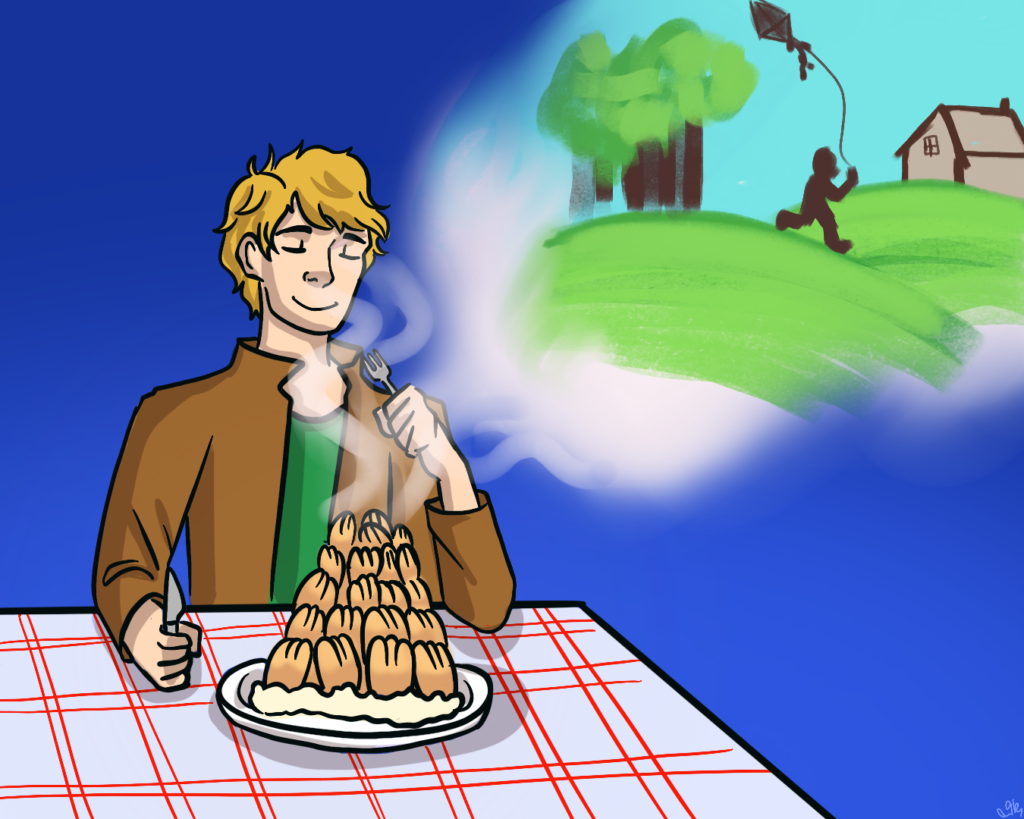By Andrea Powell Azorin
Edited by Maeve Bouchez
Have you ever smelled or tasted something that reminded you so strongly of a certain place, person, or experience, that you felt completely transported back to that memory? This unique phenomenon, called the “Proust Effect,” isn’t exactly common, yet it is likely for you to experience it several times during your lifetime, especially as you get older. It captures a sudden wave of a strong indescribable feeling that hits you when something’s taste or smell evokes a memory from your past that you thought was buried deep down in your brain. Although you might think otherwise, this concept can’t be labelled as simply feeling nostalgic or sentimental about something as it contains not only a story behind it, but also a specific scientific explanation.
The Proust Effect, or « La Madeleine de Proust », was given its name by the French writer Marcel Proust in one of the most quoted passages from his famous book “À la Recherche du Temps Perdu.” In this passage, the narrator depicts his taking the first bite of a madeleine cake while sipping on a cup of tea and suddenly feeling his childhood memories flooding back:
“No sooner had the warm liquid mixed with the crumbs touched my palate than a shudder ran through me and I stopped, intent upon the extraordinary thing that was happening to me. An exquisite pleasure had invaded my senses, something isolated, detached, with no suggestion of its origin.”

While a lot of people know what the Proust Effect is and the small story behind it, they tend to ignore the scientific and psychological side of it that explains why certain smells and tastes can trigger a memory from a particular time in your life. Our brain contains an enormous number of memories of all the experiences we’ve had throughout our life that make us who we are. But as we all know; memories tend to fade with time. When we experience something, our brain remembers sensory details, such as sounds and smells, to transform that experience into a memory. Our brain translates these sensory details into memory cues, meaning that when you re-encounter a cue, it triggers that certain memory along with the thoughts and feelings you experienced at the time.
But why is scent different from other sensory cues? And what makes it better? When you smell something, the information your nose receives goes directly to the sense-processing area of your brain, meaning that it creates a more vivid and enhanced memory of an experience. Other sensory cues, such as sound, work differently as the information received by the sensory organ must go through the thalamus (the brain’s ‘relay station’) before getting to their respective sense-processing areas of the brain, making the memory somewhat weaker and more detached than the scent-related ones.
So, as you might have gathered, the Proust Effect isn’t as simple of a concept as it seems to be at first. Understanding the inner workings of your brain when it comes to memories can help you clear doubts and confusion on why and how some things can cause you to vividly remember a memory that was once long forgotten. However, the tricky part of this effect is actually finding a smell, taste, or sound, that makes you feel that specific way, as it is usually a very precise and sometimes unique one.
